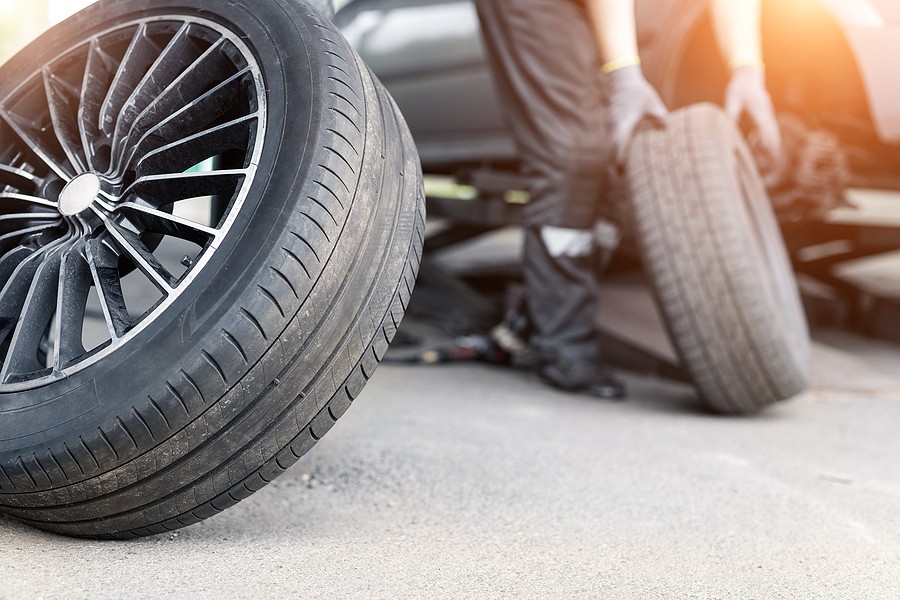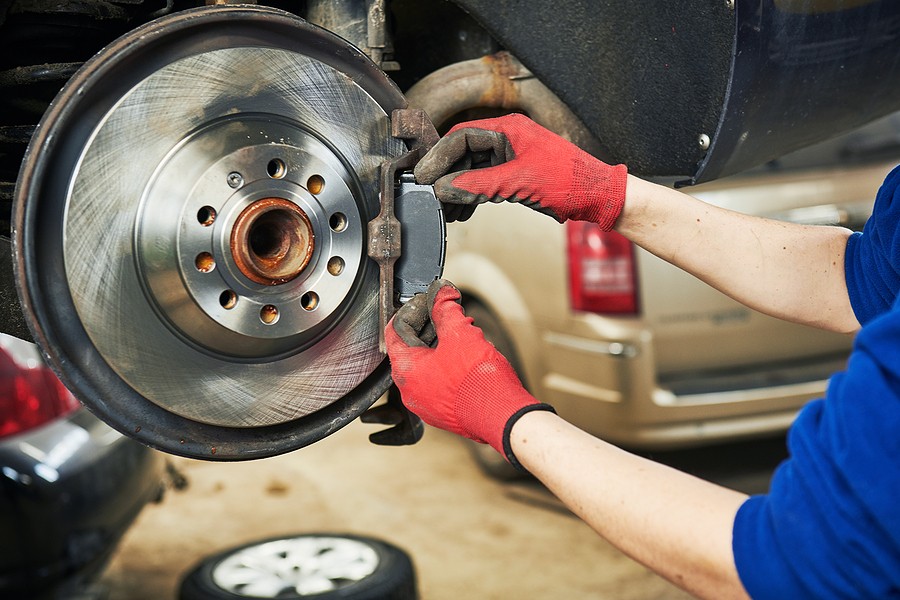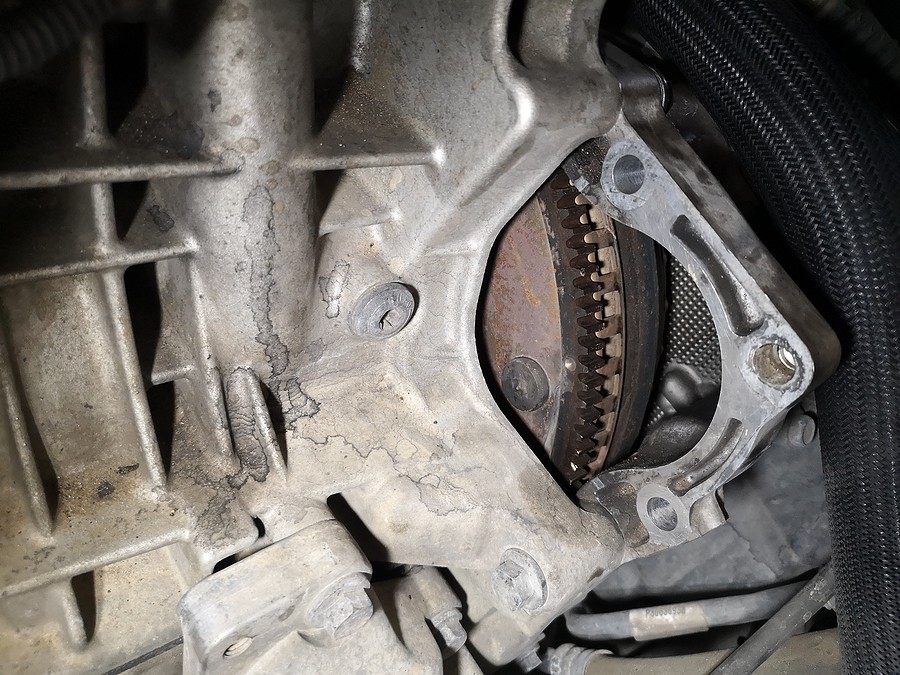The flywheel is one of the most underrated parts of a car. And just because it sits behind the engine and mostly out of sight doesn't mean that you shouldn't give it some attention now and then, especially if your car is a heavier one.
Over time, as you ride from place to place with your vehicle, you will notice that your flywheel is getting worn, which can cause some road problems.
You should look out for certain signs that can alert you to the fact your flywheel is failing. So if any of these signs happen to appear, it's good to have your car checked out by an expert to see any problems.
This article summarizes 8 Signs That Your Flywheel is Failing. Let's read on for more details!
What is a flywheel, and what does it do in your car?
Your flywheel is a large, flat, circular object made of metal that sits behind the engine. It spins at about 2,000 to 3,500 RPMs for most vehicles and transfers its kinetic energy to the transmission via a drive plate or clutch.
A properly balanced flywheel does not vibrate because it spins smoothly with practically no movement side to side. On the other hand, a flywheel that is failing will vibrate and shake like crazy, and if you let it go on for too long, it can even come apart.

8 Signs That Your Flywheel is Failing
So here are 8 Signs That Your Flywheel is Failing:
1. Vibrations When Driving
Whenever you're driving, you'll notice a level of vibration in your car when the flywheel starts to fail. The shaking will start as minor vibrations but can get worse over time.
2. Poor Performance When Accelerating
Another one of the signs that your flywheel is failing is poor performance when accelerating. Again, because the flywheel helps transfer power from the engine to the transmission, it can affect your vehicle's acceleration.
And if there are problems with it, you'll notice a sluggish or jerky acceleration, which can put a lot of stress on your engine and transmission too.
3. Loud Whining or Groaning Noises
A flywheel that fails will make all kinds of weird noises when you're driving because it's not spinning smoothly anymore. The most common sound you'll hear is a loud whining or groaning noise from the flywheel whenever you accelerate. This is especially the case when you're accelerating hard or trying to go faster after stopping short.
4. Vibrations When You Brake
You'll also notice that your brake rotors vibrate fast whenever the flywheel starts to fail. It's because the rotors are trying to stop both the engine and transmission during braking, which puts a lot of strain on them too. The vibrations will be most noticeable when slowing down from freeway speeds rather than braking at low speeds around town or in traffic.
5. Slippage While Driving
Slippage happens when your car accelerates but doesn't respond like it should because of problems with the clutch disk. The signs that this is happening are that when you step on the gas, it feels like your car is neutral and doesn't accelerate.
6. Loud Whining Noises When You Start Your Car
Whenever you start your car in the morning, listen for odd noises. If you hear a loud metallic whining sound coming from under the hood, there's a good chance that the flywheel is failing or has already failed.
The same sound can happen if your starter motor has failed, so be sure to check all components before replacing parts unnecessarily. This starts with checking fluid levels in both compartments if possible, then checking out other problems one at a time until you find where the problem lies.
7. A Burning Smell Coming From Underneath Your Hood
Another one of the signs that your flywheel is failing is a burning smell coming from underneath the hood. This happens because there's a lot of friction and heat building up inside your engine and transmission due to faulty parts, which can cause the surrounding components to overheat and smoke too.
8. Check Engine Light Appears on Your Dashboard
One last sign that your flywheel is about to fail or has already failed is when you notice the check engine light lit up on your dashboard, indicating a problem with your drive axle shaft circuit. If this problem isn't fixed quickly, the problems will only worsen as time goes by, leading to other issues, including overheating and damage to other parts in both systems.
So if you notice any of these signs when driving, stop by or give us a call to check out your vehicle and get repairs made as soon as possible.

How much does it cost to fix a bad flywheel?
A replacement flywheel can cost anywhere from $380 to more than $500 depending on the type of vehicle you have, where you're getting it installed, and what options are included too. A failed flywheel will cause many expensive issues, including damage to your engine, transmission, clutch disk, and drive axle shaft circuit. And this is why it's important to get a failed flywheel replaced as soon as you notice any of the problems mentioned above.
Other things to remember:
It's important to remember that several factors will determine the cost of a replacement flywheel repair. This includes knowing what you need, getting a quote from an expert, how much you can afford to pay, and other factors as well. Here are some tips that might help:
- First, ask for an estimate from several different shops, including dealerships.
- – Find out what each flywheel replacement includes in terms of parts and labor.
- Find out if you have a warranty that covers the cost of your repairs.
- Figure out how much money you can afford to pay upfront, including any additional fees for parts and labor too.
- Check out our website for more information about your car, including manual engine starter diagrams (if available) and service ratings too.
- Get a quote from an expert as soon as you notice any problems with your car.
Does the cost of a new flywheel include installation?
The cost of a replacement flywheel does not always include installation fees which can vary based on the current problems that your car is experiencing. If the damage to your engine, transmission or drive axle shaft circuit is minor enough, you can do the repairs yourself if you have experience with this type of work. But otherwise, it's best to contact an expert for advice on how much installation will cost.
Another important factor in deciding which type of flywheel you want to get for your vehicle. This is important because it can determine the installation cost depending on what type of replacement flywheel you order. There are cast iron and performance flywheels, including aluminum ones, so finding the best fit is important in protecting your engine and drive axle shaft circuit from further damage while avoiding unnecessary costs.
Here are some things to remember:
- The average cost of a replacement cast iron flywheel is $275 and can vary significantly depending on where you get it installed and what options are included.
- A performance cast iron flywheel costs, on average, slightly more than a cast-iron one at $378 to $470. This type of flywheel is ideal for those who want to improve their engine's horsepower and torque output over the stock unit too.
- The average cost of a performance aluminum flywheel is $400 and can vary depending on what additional services are included, including warranty coverage and other factors.
- Some vehicles might require that you get a flywheel resurfaced. This process will smooth out any imperfections that are on the surface of the flywheel during installation too. Again, you can expect to pay anywhere from $60 to more than $115 for this service, depending on the type of vehicle you have, where you're getting it installed, and what additional services are included as well.
- Installation fees for flywheels will vary depending on your location and labor rates in your area too.
- Each type of replacement flywheel has different pros and cons based on their benefits to your vehicle.
- It's important to get a quality replacement that can protect your engine, transmission, or drive axle shaft circuit from damage and make sure that you can afford to get your car repaired too.
- Get a quote from an expert and compare them today before deciding which flywheel replacement you want to buy and have installed on your vehicle instead.

Signs That Your Flywheel is Failing FAQs
This section answers questions that you might have about signs that your flywheel is failing.
How do you check a flywheel?
You need to get a trained technician to show you how to check a flywheel. They will look at the flywheel material's color and determine how worn out it depends on what signs they can find once they get under your car.
Why do flywheels fail?
A flywheel helps make up for any power lag that you might feel in your vehicle. It stores the energy created by the engine and then distributes it to other components to keep working regardless of how fast or slow the engine is turning to.
How often does a flywheel have to be replaced?
The average lifespan of a flywheel is roughly 100,000 miles depending on the type of engine you have and the usual wear and tear on it.
Can you drive with a bad flywheel?
No. You'll need to get your vehicle towed or repaired immediately once you notice signs of damage on your flywheel so you can avoid the risk of breaking the drive axle shaft circuit too.
What does a cracked flywheel sound like?
A bad flywheel can make a loud rattling noise that will get worse the faster you drive too.
How do I know if my clutch or flywheel is gone?
A bad flywheel will make a loud rattling noise while you're driving. Likewise, a slipping clutch will cause your car to vibrate when your speed increases.
Can you replace a flywheel without replacing the clutch?
Yes. However, both parts are connected, and if one fails, then you'll need to replace both of them as a set instead and avoid the risk of causing even more damage too.
If your flywheel fails, you might need to have it resurfaced. This is a process that will smooth down the surface of the metal on your flywheel so it can spin more smoothly and quietly too.
Do I need a performance flywheel?
You might want to consider getting a performance flywheel if you want to upgrade your car's horsepower and torque.
How much do performance aluminum flywheels cost?
You can expect to pay around $400 for a performance flywheel that's made out of aluminum. Prices can vary depending on the type of vehicle you have, where you're getting it installed, and any additional services included.

Does the flywheel make noise?
A quality flywheel has been balanced and mounted correctly. As a result, it won't make any noises when you're driving unless there's damage to it too.
How is a flywheel replaced?
A flywheel is either dropped out of the bottom of your car or unbolted on the top and then put back into your engine during installation.
How long can a flywheel spin?
A flywheel is designed to spin only as fast as your engine can go, so it doesn't develop any dangerous vibrations and cause more damage too.
Does the flywheel always spin?
The flywheel is only used when the engine has to generate more power. It's capable of spinning up to 12,000 RPMs too.
Can a flywheel spin forever?
The average flywheel can spin for up to 10 minutes before being replaced. If the car is off, this time limit increases to around 30 minutes.
Can flywheel produce electricity?
A flywheel is mainly used to create the opposite reaction of what your engine does, so it can store energy rather than consume it all at once.
Conclusion
If you're noticing any of the signs mentioned in this article, then it might be time to get your flywheel checked out. A bad flywheel can cause all sorts of problems with your car and lead to more expensive repairs down the road if it's not taken care of right away.
Make sure you bring your vehicle to a trained technician as soon as possible so they can take a look at it and see what needs to be done to fix the problem.



